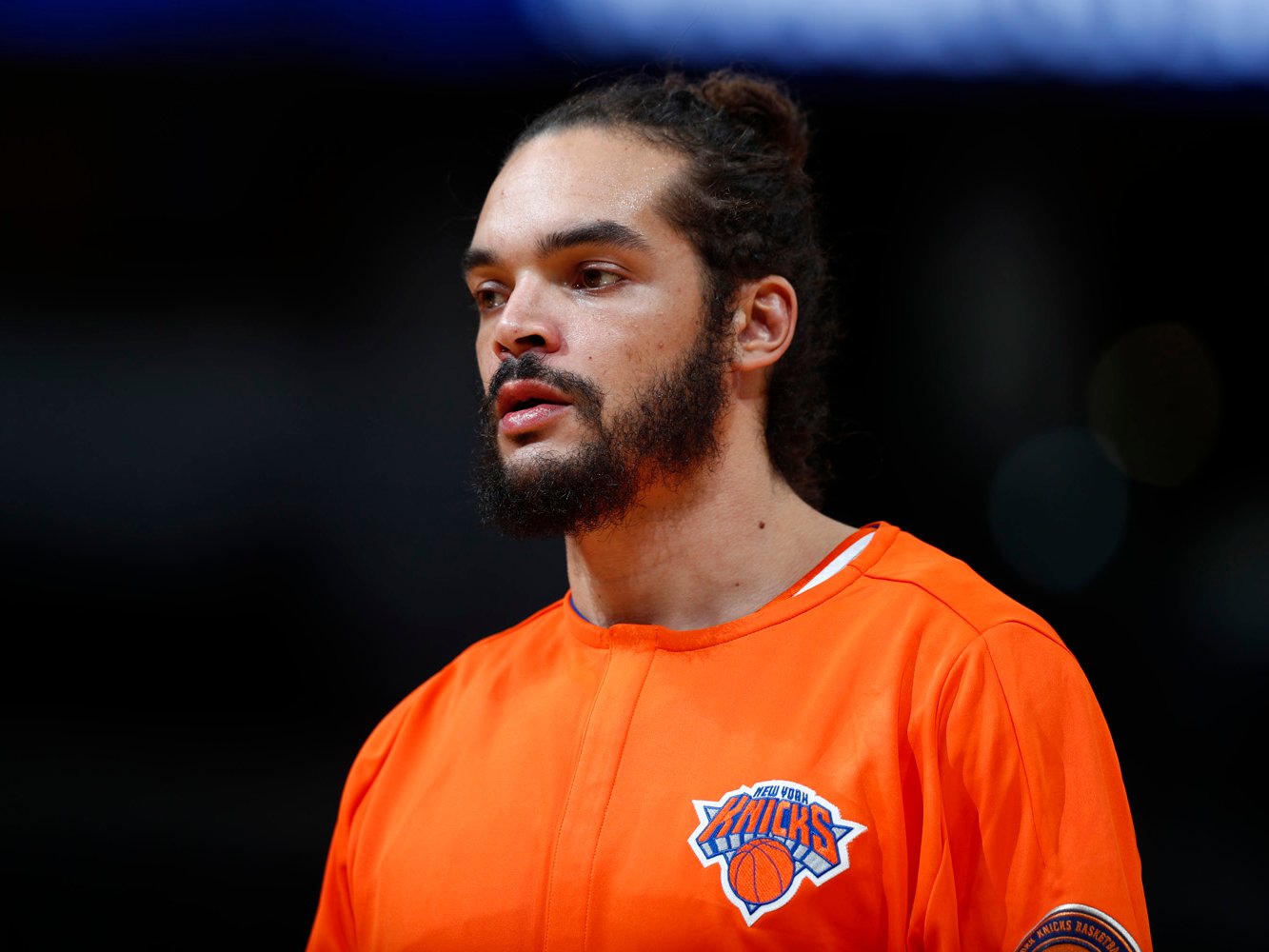
The New York Knicks made one of last summer’s most puzzling signings, giving former Chicago Bulls center Joakim Noah a four-year, $72 million contract.
Once upon a time, Noah would have easily been worth such a deal, but by last summer, most in the NBA world believed it to be a mistake.
Noah had played just 29 games the season before due to a shoulder injury. He also had become unhappy in Chicago, relegated to a bench role, and shot just 38% in the games he did play.
Furthermore, Noah had always been injury-prone, failing to play over 70 games in five of his nine seasons (excluding the lockout-shortened 2011-12 season). His PER (a comprehensive stat meant to measure a player’s overall impact) had declined the previous two seasons, falling below 15, league average, in 2015-16.
Nonetheless, the Knicks gave him the deal. And after just one season, it’s already looking like a disaster.
On Wednesday, Yahoo’s Adrian Wojnarowski reported that Noah needs surgery to repair a torn rotator cuff in his shoulder. The surgery is expected to keep him out for four to six months. Of course, Noah has already been sidelined since February with a knee injury and is serving the first part of a 20-game suspension for taking a banned substance, a suspension that will range into the beginning of next season.
Injuries aside, the Knicks can’t be happy with Noah’s production in the games he was healthy. Noah played just 46 games in 2016-17, posting underwhelming numbers of five points per game on 49% shooting, nine rebounds per game and less than one block in 22 minutes per game. While Noah has never been a raw statistics player, the Knicks were also outscored by six points per 100 possessions with Noah on the floor, third-worst on the team, and their defense, supposedly Noah’s calling-card, was three points worse per 100 possessions with Noah on the court.
Without Noah, the Knicks received solid production from rookie center Willie Hernangomez and backup Kyle O’Quinn. Hernangomez looks to be part of the future for the team, putting Noah’s role into question. While Noah, if healthy, could serve as viable backup, his contract would make him perhaps the league’s most expensive reserve center.
Moving on from the deal won’t be easy for the Knicks. A 32-year-old, injury-prone center with three years and $54 million remaining on his deal won’t be an attractive trade chip for any team. In order to get rid of Noah, the Knicks would likely have to attach a future draft pick to him — an unwise move for a team facing a rebuild.
The Knicks may just have to stay patient and hope that Noah can recover and give them at least some production off the bench. Noah still had moments of effectiveness this season, but there’s little to suggest that he can summon the energy and efficiency that marked his days with the Bulls. As has often been the case for the Knicks, they may be forced to wait out the remaining years on a bad deal.
NOW WATCH: Pro golfers are hitting the ball farther than ever before















